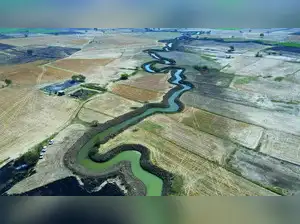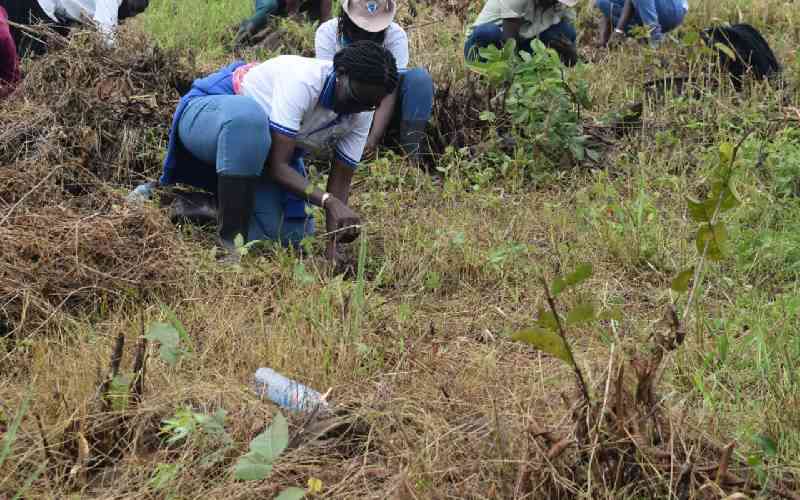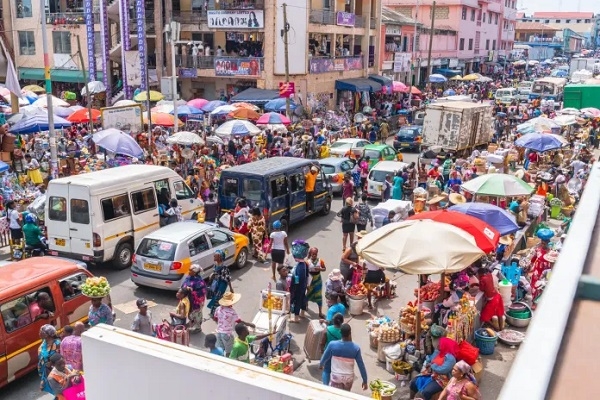 TOI.in
TOI.inThe Noon spans 87 kilometers and has experienced significant drying in a 40-kilometre stretch not far from its mouth.
The ecological collapse led to thousands of acres of farmland becoming submerged and infertile, while water for drinking and irrigation began to disappear, worsening the plight of those dependent on it.
Steps towards rejuvenating the river began as early as 2019 with measures to stem the rainwater run-off. In 2021 the district administration began work of desilting.

The efforts were also lauded by Prime Minister Narendra Modi in his monthly Mann Ki Baat address in November of 2021. District Magistrate Rajesh Kumar Pandey and Jal Shakti Minister Swatantra Dev Singh sought locals' help in the form of shramdan, or voluntary labour. As a consequence, a series of gram chaupals (village gatherings) were held across affected regions, giving farmers a platform to suggest solutions.
"One thing was clear," Pandey said, "Reviving the Noon River was not just an environmental priority - it was essential for the region's survival."
On April 13, 2025, Singh and Pandey wielded spades alongside villagers to clean the river in a symbolic gesture.
Since then, the movement has gathered momentum, with locals rallying around the cause, offering to desilt and clear the riverbed. So far, over 300 people have taken part in the effort to restore the river's course.
"People are working day and night," said Shankar Singh, Gram Pradhan of Mahewa village.
"The Noon was completely dry near Kukar, and its water had been diverted to the Abdani River through a polluted drain. Now, we hope to restore a clean, continuous flow," he said.
Pandey on a recent visit to Sheikhpura, the village of former dacoit-turned-politician Phoolan Devi, instructed local block development officers to ramp up desilting operations and deploy more hands at grassroots level.
A 20-kilometre stretch of the river has already been restored, while the remaining is expected to be finished before the monsoon arrives in the first week of July, said the DM
The project's potential impact is significant. Once fully restored, the Noon is expected to irrigate approximately 2,800 hectares of farmland across 47 villages. It will bolster agricultural productivity, give clean drinking water, and feed livestock and wildlife.













